How to build a successful career in Quality Assurance?
Category: Quality Assurance Posted:Jun 01, 2017 By: Serena Josh Quality Assurance has off-late proven to be a highly viable career path. For people with the right skill set and experience, there is a high demand and prospects for good compensation. Professionals looking into quality assurance jobs will have to possess a good deal of knowledge in automation. Since automation testing is the future of QA, in the current market scenario manual testing is delegated to the business analyst or is outsourced to an off-site location. Most IT Enterprises are beginning to realize the benefits of automation testing with each company having proprietary technologies stacks, job requirements are bound to vary. For example, if professional designs to work for an Enterprise which utilizes ruby as its main development language, they will be expected to have knowledge of Ruby On Rails and also how to execute tests with Rspec and Capybara.
Quality Assurance has off-late proven to be a highly viable career path. For people with the right skill set and experience, there is a high demand and prospects for good compensation. Professionals looking into quality assurance jobs will have to possess a good deal of knowledge in automation. Since automation testing is the future of QA, in the current market scenario manual testing is delegated to the business analyst or is outsourced to an off-site location. Most IT Enterprises are beginning to realize the benefits of automation testing with each company having proprietary technologies stacks, job requirements are bound to vary. For example, if professional designs to work for an Enterprise which utilizes ruby as its main development language, they will be expected to have knowledge of Ruby On Rails and also how to execute tests with Rspec and Capybara.
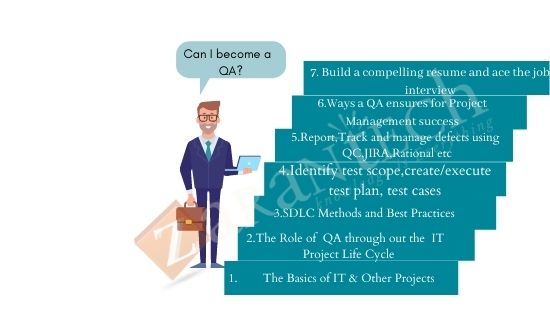
Also alternatively, if the Enterprise focused mainly on Java or C++ in development frameworks then one will be expected to possess a knowledge of testing tools such as Selenium, Cucumber and even other tools such as SmartBear and TestNG, Ranorex and other available automation test suites. The primary skills that companies look for are if professionals can code and automate test scripts.
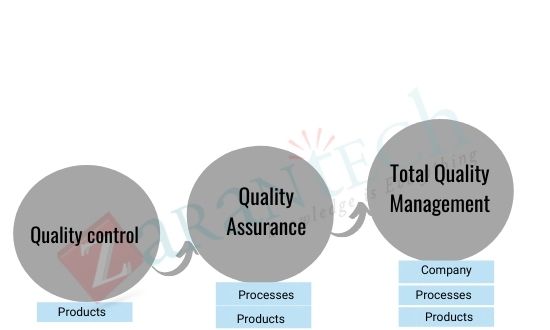
QA Testers are expected to think like a developer; even if they aren’t developers by profile or previous experience. This is because one will have to probe the code in an in-depth manner, write ttest scriptsand in the end pin-point the problem areas to fix for the developer. In some cases the testers themselves will be expected to fix the coding issue or bug. What is great about the current economy and advancements in networking are that a testing professional does not have to be tied down to a single organization. A skilled QA Tester will be able to work independently by taking up freelancing. If a professional wants to benefit from a constant pay check then the professional can take up a remote work assignment.
Career Paths for Software QA Professionals
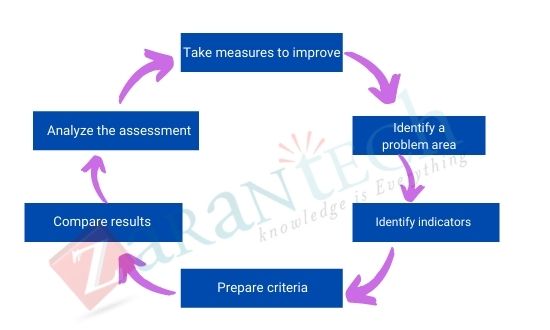 Quality assurance as a career hasn’t been given the attention it deserves considering the opportunities available for professionals seeking to take up QA as a career. QA testers can eventually assume the role of a QA manager with adequate amounts of experience. QA staff can also experience lateral growth in terms of moving into test automation and strategy. They can also function as full-time developers.
Quality assurance as a career hasn’t been given the attention it deserves considering the opportunities available for professionals seeking to take up QA as a career. QA testers can eventually assume the role of a QA manager with adequate amounts of experience. QA staff can also experience lateral growth in terms of moving into test automation and strategy. They can also function as full-time developers.
Learn Quality Assurance from Industry Experts
In the ever-changing IT market scenario of today, more and more corporations have adopted agile development techniques, DevOps approaches and more, with QA professionals finding themselves in the thick of all the action. Brenda Hall, the well-known CEO of the Software QA firm named Bridge360 says that QA has gained a higher priority with it being present throughout the complete software cycle, focusing on existing business goals. And it is no longer only brought up during the end of the software product launch, with it being integrated right into project initiation all the way into project closure.
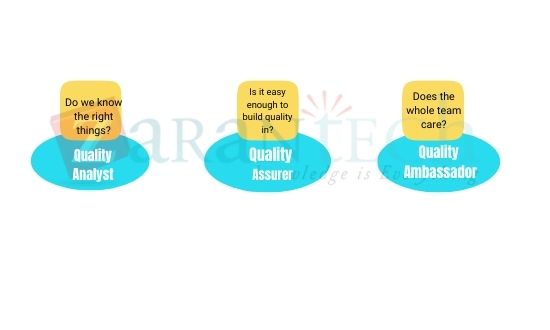
A leading QA Manager at a company named QAlytics says that starting out as a QA tester will take some effort with the initial pay being not that great, with lesser benefits offered than is given to developers.
In the current market scenario, QA professionals with a fair amount of experience are able to not only manage QA testing processes, but also to handle brand new career challenges ranging from enterprise architecture, product management and even customer experience. Given below are career paths and alternative career growth options for QA professionals:
1. Product Manager
The founder of the QA services firm QAlytics, Larry Kelley has stated that QA professionals have been seen taking on several new challenges. Some of these are high-profile jobs such as project management for a major health insurance provider, VP of developer/publisher relations for an entertainment enterprise or even the head of a gaming enterprise.
It has been observed that QA professionals can easily slip into the product management profiles in enterprises. It is said that QA pros are into repeated reviewing and analysis of software, thereby gaining a thorough and in-depth understanding of software quality enhancement methodologies. The current market calls for software with high levels of functionality which is critical to project success within enterprises.
It is said that QA professionals are the most sought after within and outside the enterprise for new feature and product development as well. Most QA staff will have accumulated vast reserves of experience to enable taking the product and its features to brand new highs of improvement. QA professionals throughout the world can be seen by market experts to move into several other varying areas of the enterprise, even running PMOs and while shifting to director level will lead business units and worldwide enterprises.
2. DevOps Roles
Their comprehensive view of all development processes can make a QA professional don the role of a release manager or engineers. It can also be as an Automation Engineer and a Product Stability Manager, in businesses that follow a DevOps approach to software development.
DevOps, more often than not needs a holistic approach to application development and its delivery. Such an approach should make sure that code is delivered to customers at higher frequencies, at accelerated speeds and at a much higher quality. This is not a problem faced by Developers as they are in too deep with respect to the code. QA has been rapidly moving upstream, allowing for higher degrees of participation in DevOps approaches, with a QA professional being able to take over the DevOps role completely.
3. Customer Experience Leader
While it is an established fact that, more often than not QA professionals are short-sighted, in the sense that they are focused only on the users or the customers which might not necessarily be a bad thing. Enterprises can leverage this extreme focus on customer interests by placing QA staff in charge of handling the customer experience. This is a strategic move that gains more importance with each passing day since companies are paying increased attention to their customers and modelling their complete set of project processes according to customer interests and preferences. Since the hallmark of a great tester understands that the customer comes first, almost any customer facing position would be a perfect fit for a QA Tester.
Technology driven companies often see that QA Testers for software products are in fact the actual vice of the customer. Enterprises have to take into consideration the human element at all times during the SDLC. Enterprises can leverage the capabilities of the QA to embody the customer, whilst asking questions such as what the customers care about and why.
4. Enterprise Architect
QA professionals are best suited for roles that are known for creative de-construction, with natural born critics (as personality types go) taking easily to QA profiles as compared to others.
It has been established that QA staff display attention to minute detail along with the use and appreciation of independent review that is rarely seen in developers. While these character traits are not appreciated in accelerated software development processes, the very same traits are sought out in enterprise architects, making QAs the prime candidates for selection.
The acute attention to detail and the innate ability to take on various dynamic components and make them work as a part of a big picture in process flow is what is seen in QAs. Such skills are of critical importance when it comes to the role of an Enterprise Architect as a professional who is responsible for the development and design of enterprise wide software delivery processes.
5. IT management
Professionals interested in game development and entertainment technology are suited as candidates for QA testers, with most such candidates being able to quickly rise up the ranks in terms of assuming management roles. In order to execute effective management strategies, one has to first comprehend their team members’ daily tasks along with their mind-sets. Since QAs comprehend the ups and downs of the Software development Lifecycle (SDLC), it enables such professionals to take on the mantle of management more easily and allowing one to mentor and guide employees with higher efficiencies.
Skills learnt as a QA which includes critical thinking and about the big picture in terms of the SDLC, helps one a great deal in taking up a management role, easing he transition from testing to managing a great deal. QA testing sees professionals gear up to make risk-based decisions. These can range anything from the consequences of a change in the software product on any level to whether a change can cause issues in any manner for the customer. It helps the professional prioritize problems faster and better than would be possible if he/she hadn’t been a QA tester prior to taking up management.
The orthodox thinking of the IT industry (which seems to be changing, thankfully!) that the role of the QA is of lower importance when contrasted with development. Currently a CTO or CIO position can only be fulfilled by a development head or director doubling as a successor. But going by the way that things are changing for QA professionals, this too could change, with QA professionals donning roles of much higher profiles than possible today.
6. Quality Engineering and Strategy
While the change from QA to quality engineering may not seem like a quantum leap, it is a distinct way to add value to the career of a QA professional. Quality Engineering sees less efforts being directed towards keeping up quality on specific application releases and more on bringing up a system that ensures high quality for all releases in the present and the foreseeable future. This means QA professionals have been seen electing to go for roles in QA strategy as opposed to the historic trend of handing over such roles to non-technical professionals with mostly Business Analyst backgrounds.
Register for Quality Assurance Live Webinar
Beyond the scope of QA
Most QA professionals have to get past hurdles while taking on much larger roles either within testing profiles or outside of the same. QA Managers usually set themselves up for a considerable failure when they choose not share wins, opportunities and points of view. In strategic roles such as this, one needs to communicate all that transpires and that is considered important. Such communication will also have to be unfettered, and continuous and at regular intervals. This is especially important since such interactions are not enforced by the presence of documentation. Therefore it is of paramount importance to promote holistic communication across disparate teams while striving to achieve a project goal (or related goals). Preparing for future opportunities should see QA testers collaborate and coordinate on automation projects and related strategy, while sharing the best ideas for enhancing productivity and getting involves in new initiatives.
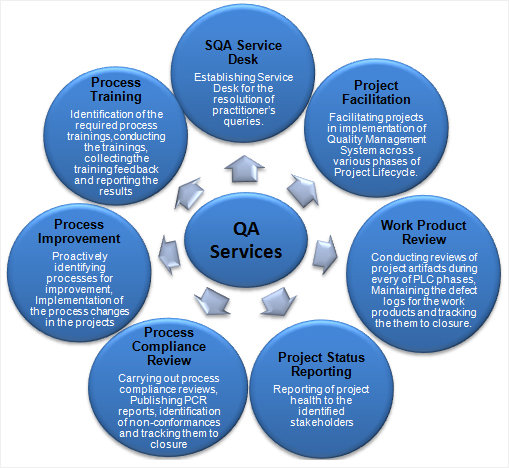
The initial period in a QA Tester’s career is bound to be fraught with discouragement in the form of low pay, lesser valued profiles and compensations along with a whole load of other factors. But these factors, if overcome (as is done by most great QA folk) can lead to great cultivation of leadership skills, taking on higher levels of responsibilities and taking the initiative to create new responsibilities by themselves.
With the right motivation and goals in mind, QAs can easily make the transition to a wide array of important roles such as Finance, Data Analytics and more. In the end, universally marketable skills such as critical thinking, process focus and organizational ability coupled with the all-important ability to work well with others can translate into a long, eventful and lucrative career.
Qualities that make great QA Professionals
Familiarization with the software development process and popular tools and techniques used in the same will definitely go a long way with helping a QA aspirant to land an interview with a company of their choice. This being said, considering the large volume of applications that are received by hiring Managers on a daily basis, it imperative that a professional aspiring to land the QA job of their dreams must possess a few or all of these character traits and qualities:
Creativity
Great QAs are known for their ability to recognize needs and eke out positive or negative scenarios that may be the outcome of every stage of the product development process (software product!). The innate ability to anticipate the unexpected at every stage of a development process defines a QA to a great extent. A creative approach to formulating highly improbable ( yet possible ) testing scenarios which is able to undermine or question the set of systems with even the best possible development will most definitely give aa QA an edge over the competition. It is good for a QA to test outside what are established boundaries to help build better products.
Diplomacy
This particular skill (yes it is a skill!) cannot be stressed enough with regard to the profile of a QA. The core of a QAs job comprises of repeatedly informing the developers and product managers that their creation is unfit for consumption by a consumer – but only as a means to an end of developing products of superior quality. While getting into this process early on is important, it is equally important to tread softly when it comes to delivering the bad news! This means building a great rapport with the development team within the enterprise.
The way to go about doing what was just said is to make the developers and the product managers understand that your role as a QA will ultimately make them look good too! It is also of great importance to keep product criticism within a closed loop, avoiding spreading bad news on a large scale. It is better to deliver negative feedback in person instead of the bug tracker, which aids in the building of better relationships which inevitably leads to the construction of better products.
Clarity
The role of a QA is not that of a fault finder, but it is one that helps deliver clear and actionable insight which takes a high degree of cultivated skill. A great QA will often identify the importance of detailed and specific information which delves into the intricacies within a flaw, which includes details on reproduction of the same flaw when needed for analysis. The more detail that is provided by the QA, the more better it is for the entire QA process, since it will reduce the chances of product managers or Senior QAs coming back with more queries once they receive the bug report. It is never a good thing to assume that product managers or developers will always be well-versed with the QA lingo used to describe issues. One has to spell out such issues with great clarity in order to avoid a frustrating work cycle with peers and seniors alike.
Objectivity
QAs receive inputs from the complete software development process, with verification just amounting to a single facet of this role. It is worth recalling at this stage of discussion that a wide majority of users are not interested in the code, they are more concerned with the functionalities that are offered by the application that they have ordered to be built. As a QA professional, the ability to provide objective insight into the workings and validity of a set of features or changes is just as essential as the ability to validate code.
Such validation at macros and micro levels (features and code for the features respectively) should take place early on in the SDLC, because otherwise there will be a host of arguments and unpleasant discussions to be handled if such usability issues are brought just a week before the product launch. Objectivity also includes the priceless ability to shelve personal dislike for existing features along with minor imperfections – especially if they have a minimal or negligible negative impact. Verification and validation has to go hand in hand to add real value to your tea in the enterprise.
Ability
While tools are bound to come and go, advanced automated QA testing techniques for highly convoluted software products brings up the need for career oriented QAs to possess an excellent command over market friendly developer languages such as Java and C#. The ability to write automation scripts using Python, Ruby, Perl or anything similar will undoubtedly set one on the road to swift career advancement. While software QA professionals do not always get the recognition due to them, ever – increasing awareness of software quality and the consequences that are brought on by the lack thereof means almost every existing IT enterprise is placing increased importance on QA.
Conclusion
The IT market while always being dynamic has a fixed focus on customer retention and expansion of a customer base. With the rising costs associated with bad software product quality, enterprises are putting their faith in preventive rather than reactive measures to regulate product quality. And this means that QAs stand a great chance of building significant and lucrative careers in the current market scenario.
I hope now you had an idea about Quality Assurance, before enrolling QA training from ZaranTech have a look into this insightful video for beginners:

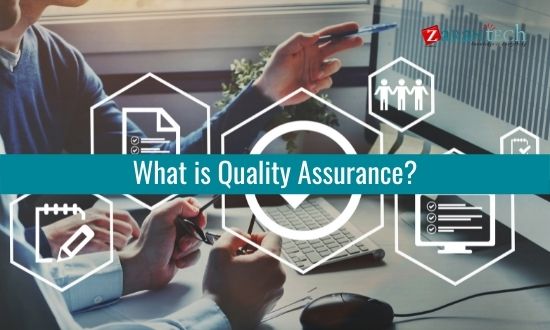

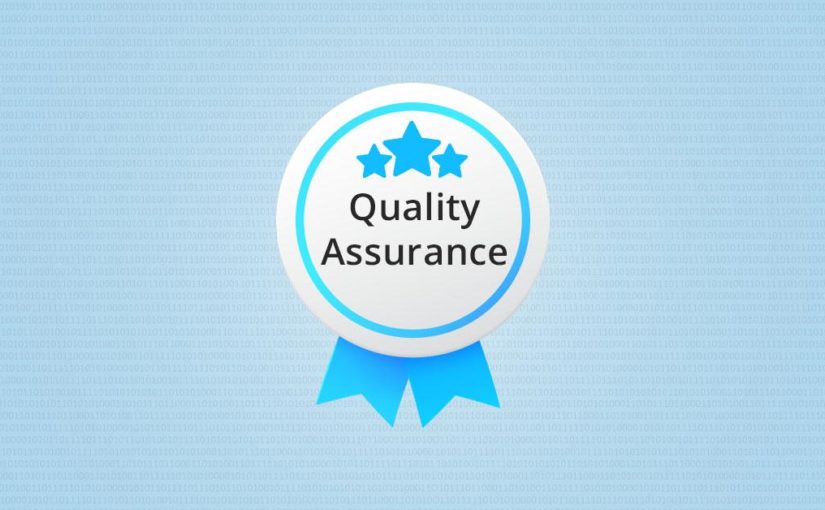
 99999999 (Toll Free)
99999999 (Toll Free)  +91 9999999
+91 9999999